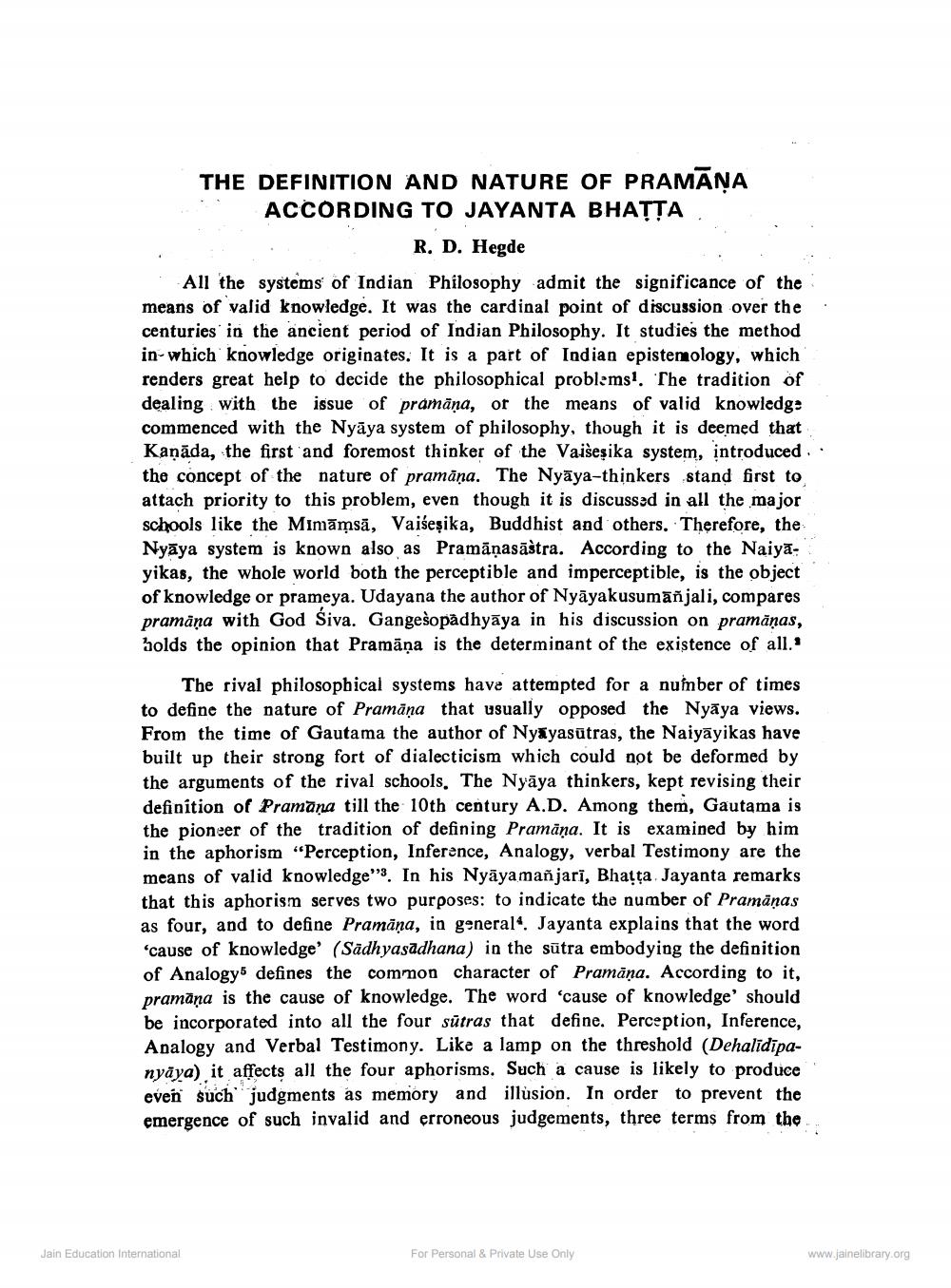________________
THE DEFINITION AND NATURE OF PRAMĀNA ACCORDING TO JAYANTA BHATTA.
R. D. Hegde All the systems of Indian Philosophy admit the significance of the means of valid knowledge. It was the cardinal point of discussion over the centuries in the ancient period of Indian Philosophy. It studies the method in-which knowledge originates. It is a part of Indian epistenology, which renders great help to decide the philosophical problemsl. The tradition of dealing with the issue of pramāņa, or the means of valid knowledge commenced with the Nyāya system of philosophy, though it is deemed that Kanāda, the first and foremost thinker of the Vaišesika system, introduced .. the concept of the nature of pramāņa. The Nyāya-thinkers stand first to attach priority to this problem, even though it is discussed in all the major schools like the Mināmsā, Vaišeşika, Buddhist and others. Therefore, the Nyāya system is known also as Pramāṇasāštra. According to the Naiyayikas, the whole world both the perceptible and imperceptible, is the object of knowledge or prameya. Udayana the author of Nyāyakusumāñjali, compares pramana with God Siva. Gangešopadhyāya in his discussion on pramānas, holds the opinion that Pramāņa is the determinant of the existence of all."
The rival philosophical systems have attempted for a nuínber of times to define the nature of Pramāņa that usually opposed the Nyāya views. From the time of Gautama the author of Nyāyasūtras, the Naiyāyikas have built up their strong fort of dialecticism which could not be deformed by the arguments of the rival schools. The Nyāya thinkers, kept revising their definition of Pramāna till the 10th century A.D. Among them, Gautama is the pioneer of the tradition of defining Pramāņa. It is examined by him in the aphorism “Perception, Inference, Analogy, verbal Testimony are the means of valid knowledge". In his Nyāya mañjarī, Bhatta Jayanta remarks that this aphorism serves two purposes: to indicate the number of Pramānas as four, and to define Pramāna, in general“. Jayanta explains that the word 'cause of knowledge (Sadhyasadhana) in the sūtra embodying the definition of Analogy5 defines the common character of Pramāņa. According to it, pramāna is the cause of knowledge. The word 'cause of knowledge' should be incorporated into all the four sūtras that define. Perception, Inference, Analogy and Verbal Testimony. Like a lamp on the threshold (Dehalidīpanyāya) it affects all the four aphorisms. Such a cause is likely to produce even such judgments as memory and illusion. In order to prevent the emergence of such invalid and erroneous judgements, three terms from the
Jain Education International
For Personal & Private Use Only
www.jainelibrary.org




